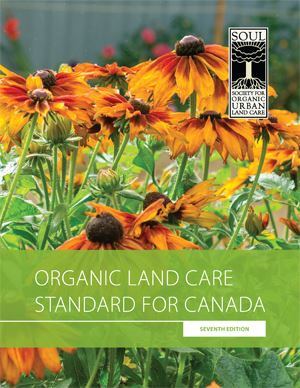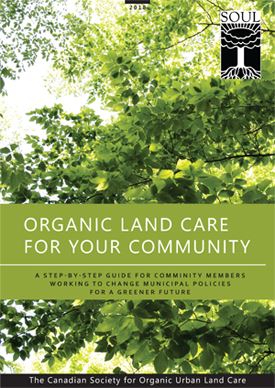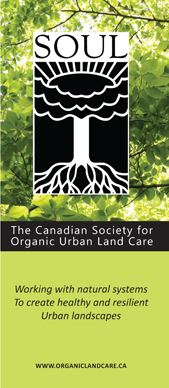Cultivating a Local Land Care Community in Ottawa, ON
In my work at SOUL, one of the questions I’ve been mulling over for some time is why, with all of the passionate graduates from the Gaia College courses and the public interest and concern around the collapse of pollinator populations and native ecosystems, businesses focused on caring for land continue to struggle to be successful and financially sustainable.
My personal challenge, as a designer, has been helping clients find resources that are locally, ethically and sustainably sourced, plants that are locally native that don’t come in disposable pots, high quality compost for regenerating the below ground ecosystem and professionals who actually want to reclaim, repair and repurpose materials and tend complex ecosystems. What I don’t have trouble with is finding clients and engaging them in the idea of land care.
I’m confident that there are people who would like to be filling all of these horticultural niches and making their livelihood through this work but it can be challenging and risky to start a new business and cultivate a client base, especially when you are doing things in unconventional ways. For land care to be locally, professionally viable, we need to develop our professional ecosystem.
.JPG)
With all of this in mind I started a project this spring. It is a Local Land Care Community. It currently exists as a Facebook group and an email list, as well as an in-person gathering every so often. The original plan was for monthly breakfast meetings on weekdays, with a Saturday afternoon potluck picnic every third month. Unfortunately, shortly after the first meeting, Covid struck.
Breakfast meetings were scrapped and we retreated to the internet but, as restrictions relaxed, we started gathering outdoors for a bring-you-own picnic every month or so this summer.
There are currently over 30 members in the Facebook group, including established landscape professionals working on converting to a land care approach, aspiring professionals and people doing complementary not-for-profit work.
We’ve been keeping gatherings to around 10 or 15 people and entirely outdoors. The picnics are informal, the location has been moving around the city as different people host and different people make it to different gatherings.
After less than a single growing season, in a highly disrupted year, there are already informal business partnerships developing along with conversations about sharing land and other resources. A first-year farmer is now selling her produce at the farm gate of another member. There will likely be one or two small businesses growing locally native plant species by next spring. These small start-ups already have a client base in the landscapers and gardeners in the group. Someone is looking into building some Johnson-Su Bioreactors to produce inoculation grade compost. Landscapers and gardeners are saving pots from planting projects, for those who are planning on growing local plants, and plant material removed from project sites for composting or incorporating into future projects. Ideas, referrals and resources are all being exchanged freely and there is a lot of encouragement and excitement about supporting each other in our efforts to work with plants, land and soil in a way that supports their health and lives, as well as our own.
.JPG)
The Local Land Care Community in Ottawa is looking like it will be a success.
As it continues to come together, some of the questions that I’ll be looking into include:
- What is the critical mass we need to reach and the critical niches that we need to fill for a land care ecosystem to become truly viable?
- What needs to go into maintaining a vibrant network?
- Can the work of maintaining the group be effectively spread across the participants or does a single person or a small group need to manage communications?
- What communication resources, directed toward other horticultural professionals and toward potential clients, are needed/will help support the growth and acceptance of land care practices within the local community. (You can find examples of how I’m currently framing public facing messages on my business website.)
If all goes well, we’ll be developing a tool kit on how to cultivate a Local Land Care group in your community.
If you are already thinking of starting a group in your community one and don’t want to wait for the guide, please let me know, I’d be happy to loop you into the discussions and provide what support I can.
If you are working in land care in the Ottawa area and would like to join the group, please send me an email or request to join this Facebook group.




